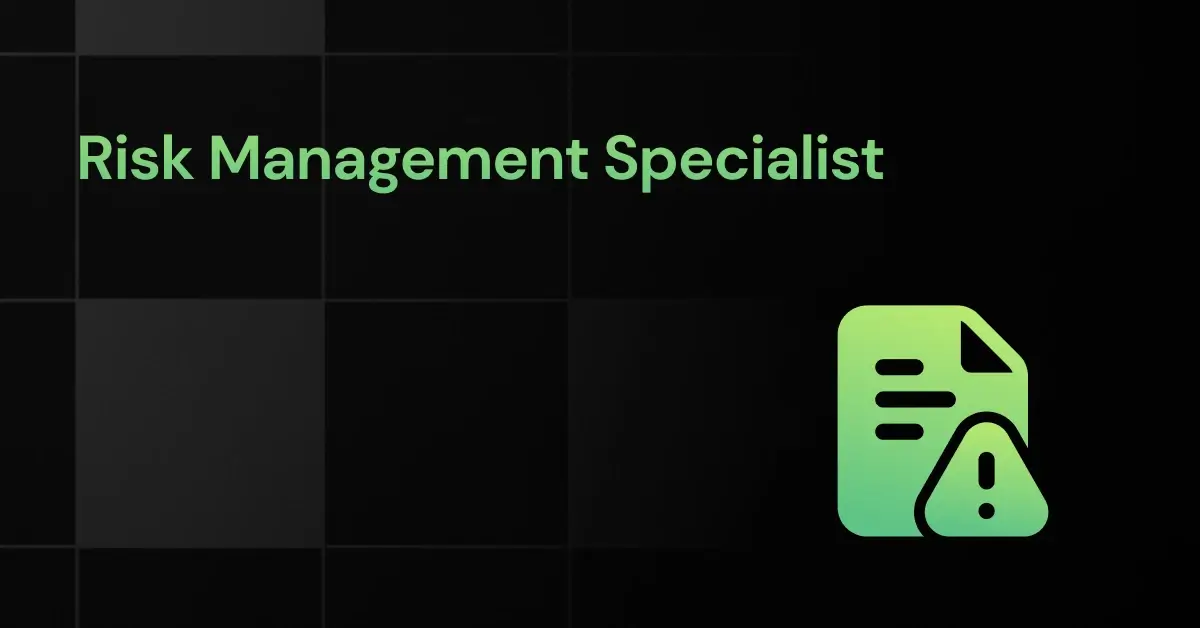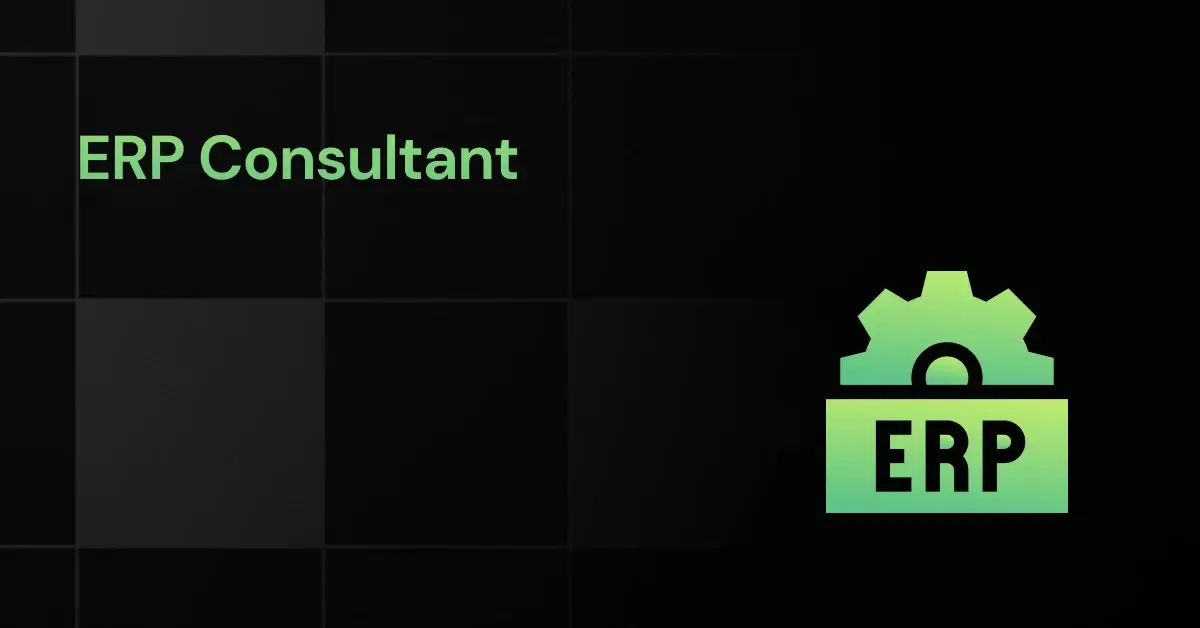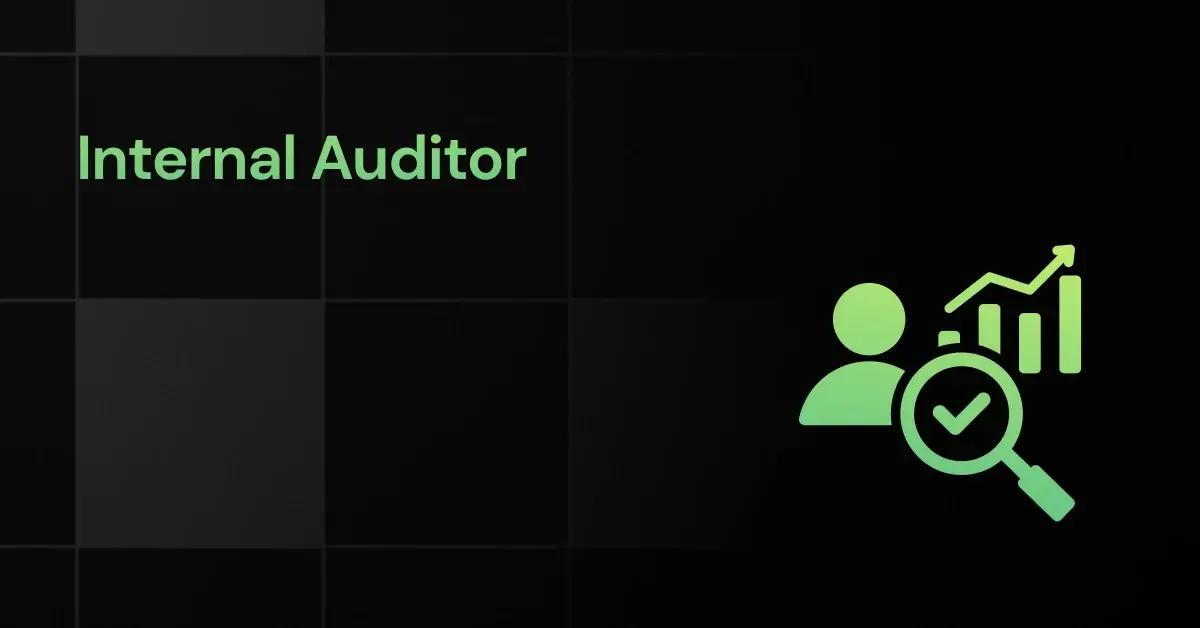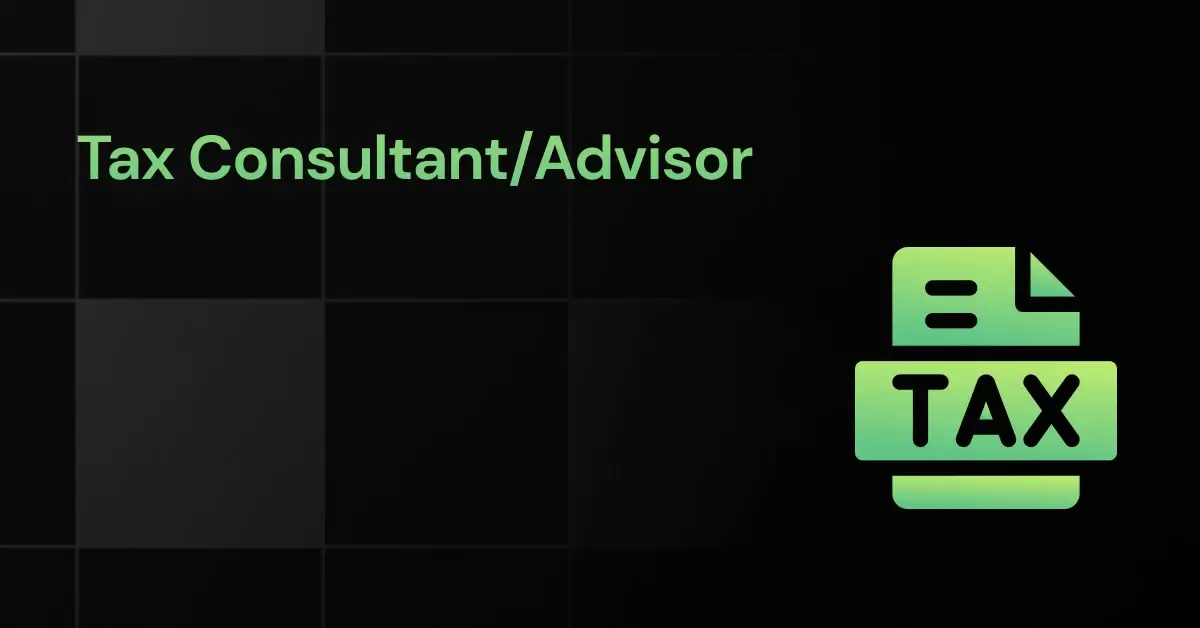Alternative Career Options for CA Dropouts

Have you ever wondered why some CA students choose to leave the path midway? The journey to becoming a Chartered Accountant is extremely rigorous, marked by challenging exams and intense competition. For many, the journey can be overwhelming, leading to reconsideration of their career choices.
This article explores alternative career options for CA dropouts, highlighting how the skills and knowledge acquired during their CA journey can be effectively utilized in other rewarding professions.
Alternative Career Options for CA Dropouts – Overview
Here’s an overview of alternative career options for CA Dropouts with insights into transition time, starting salaries, and potential for remote work:
| S.No. | Career Options | Transition Time | Avg Starting Salary Per Annum (INR) | Potential for Remote Work |
|---|---|---|---|---|
| 1 | Data Analyst | 6-12 months | 3-6 Lakhs | High |
| 2 | Business Analyst | 6-12 months | 4-7.5 Lakhs | High |
| 3 | Management Consultant | 1-2 years | 5-10 Lakhs | High |
| 4 | Financial Analyst | 6-12 months | 4-8 Lakhs | Moderate |
| 5 | Corporate Finance Advisor | 1-2 years | 6-12 Lakhs | Low |
| 6 | Risk Management Specialist | 1-2 years | 5-9 Lakhs | Low |
| 7 | ERP Consultant | 1-2 years | 4.5-9 Lakhs | Moderate |
| 8 | Internal Auditor | 1-2 years | 4-8 Lakhs | Low |
| 9 | Tax Consultant/Advisor | 6-12 months | 4.5-8.5 Lakhs | Low |
| 10 | Financial Planner/Advisor | 1-2 years | 4.5-9 Lakhs | Moderate |
Career Change Options for CA Dropouts – Let’s Find the Alternatives
Below is the list of career change options or alternative employment for CA Dropouts.
1. Data Analyst
A Data Analyst is a professional who collects, processes and performs statistical analyses of data. Their work is crucial in helping organizations make data-driven decisions.
For CA Dropouts, this career can be a great fit as it leverages their analytical skills, attention to detail, and proficiency in handling numbers and data, skills that are often honed during CA training.
Job Market and Demand in India:
- The demand for Data Analysts in India is growing rapidly due to the increasing importance of data-driven decision-making in businesses.
- There is a particular surge in demand in sectors like IT, finance, and e-commerce.
- Cities like Bengaluru, Mumbai, and Hyderabad are leading hubs for data analyst opportunities due to the concentration of tech companies and startups.
Skills and Knowledge Prerequisites:
- Proficiency in data analysis tools and software, such as Excel, SQL, and Tableau.
- Strong understanding of statistical methods and data interpretation.
- Knowledge of programming languages like Python or R for data analysis.
- Ability to clean, process, and analyze large datasets.
- Familiarity with data visualization and reporting techniques.
Transferable Skills:
- Strong numerical and analytical skills.
- Attention to detail and accuracy.
- Problem-solving and critical thinking abilities.
- Effective communication skills for presenting data insights.
- Time management and organizational skills.
Starting Salary:
- The average starting salary for a Data Analyst in India is approximately between INR 3,00,000 and INR 6,00,000 per annum.
Duration for Transition:
- Transitioning to a Data Analyst role can take 6-12 months, depending on the individual’s background and the intensity of learning data analysis skills.
Risk Assessment:
- Risks include keeping up with rapidly evolving data analysis tools and technologies.
Work Flexibility:
- Data Analyst roles often offer options for remote work, as well as full-time and part-time positions.
Work-Life Balance:
- Generally, Data Analysts have a balanced work-life, though project deadlines may occasionally require extra hours.
Career Progression:
- Opportunities to advance to senior data analyst, data scientist, or data manager roles.
- Potential to specialize in specific industries or types of data analysis.
Job Stability and Industry Outlook:
- The field of data analysis is expected to grow, offering stable career opportunities.
- With the increasing reliance on data in decision-making, the demand for skilled Data Analysts is likely to remain high.
2. Business Analyst
A Business Analyst is involved in analyzing an organization’s business domain, documenting its processes, systems, and assessing business models to integrate technology solutions.
This role is a good fit for CA Dropouts as it leverages their analytical skills, financial knowledge, and understanding of business processes.
Job Market and Demand in India:
- The demand for Business Analysts in India is high, driven by the digital transformation of businesses and the need for data-driven decision-making.
- Business Analysts are sought after in various sectors, including IT, banking, and consulting.
- Major cities like Bengaluru, Mumbai, and Delhi offer numerous opportunities due to the concentration of businesses and IT companies.
Skills and Knowledge Prerequisites:
- Proficiency in data analysis and business intelligence tools.
- Strong understanding of business processes and requirements gathering.
- Knowledge of project management and software development life cycle (SDLC).
- Skills in creating detailed business analysis and reporting.
- Familiarity with database management and IT systems.
Transferable Skills:
- Analytical thinking and problem-solving abilities.
- Effective communication and interpersonal skills.
- Attention to detail and accuracy in analysis.
- Ability to manage multiple projects and stakeholders.
- Adaptability to changing business environments and technologies.
Starting Salary:
- The average starting salary for a Business Analyst in India is approximately between INR 4,00,000 and INR 7,50,000 per annum.
Duration for Transition:
- Transitioning to a Business Analyst role can take about 6-12 months, depending on the individual’s background in business and IT.
Risk Assessment:
- Risks include adapting to rapidly changing business needs and technologies.
Work Flexibility:
- Business Analyst roles often offer options for remote work and flexible schedules, along with full-time positions.
Work-Life Balance:
- Generally, Business Analysts have a balanced work-life, though project deadlines may occasionally require extra hours.
Career Progression:
- Opportunities to advance to senior business analyst, project manager, or business consultant roles.
- Potential to specialize in specific industries or functional areas of business analysis.
Job Stability and Industry Outlook:
- The field of business analysis is expected to grow, offering stable career opportunities.
- With businesses increasingly focusing on data-driven strategies, the demand for skilled Business Analysts is likely to remain high.
3. Management Consultant



A Management Consultant works with organizations to improve their performance by analyzing existing organizational problems and developing plans for improvement.
For CA Dropouts, this career is a good fit as it utilizes their strong analytical skills, financial knowledge, and understanding of business operations.
Job Market and Demand in India:
- The demand for management consultants in India is growing, driven by the need for expertise in business strategy and efficiency improvement.
- There is a significant demand in sectors like finance, healthcare, and IT, where strategic planning and operational efficiency are crucial.
- Major cities like Mumbai, Bengaluru, and Delhi are key hubs for management consulting opportunities due to the concentration of businesses and corporate offices.
Skills and Knowledge Prerequisites:
- Strong analytical and problem-solving skills.
- Knowledge of business processes, finance, and market trends.
- Proficiency in data analysis and presentation tools.
- Ability to develop strategic business plans and provide actionable recommendations.
- Understanding of project management and organizational change management.
Transferable Skills:
- Analytical thinking and strategic planning abilities.
- Financial acumen and business knowledge.
- Effective communication and interpersonal skills.
- Adaptability to work in diverse industries and with various clients.
- Leadership and team management skills.
Starting Salary:
- The average starting salary for a Management Consultant in India is approximately between INR 5,00,000 and INR 10,00,000 per annum.
Duration for Transition:
- Transitioning to a management consultant role can take about 1-2 years, depending on the individual’s prior experience and business acumen.
Risk Assessment:
- Risks include adapting to different industries, staying updated with market trends, and managing client expectations.
Work Flexibility:
- Management Consultant roles often offer options for remote work and flexible schedules, along with full-time positions.
Work-Life Balance:
- The work-life balance can vary, with some periods requiring extensive travel and longer hours during critical project phases.
Career Progression:
- Opportunities to advance to senior consultant, project manager, or partner roles.
- Potential to specialize in specific industries or functional areas of consulting.
Job Stability and Industry Outlook:
- The consulting industry is expected to grow, offering stable career opportunities.
- With businesses constantly seeking ways to improve efficiency and adapt to market changes, the demand for skilled consultants is likely to remain high.
4. Financial Analyst



A Financial Analyst is responsible for assessing the financial health of businesses and markets, providing insights and recommendations for investments, budgeting, and other financial decisions.
This role is well-suited for CA Dropouts as it capitalizes on their strong foundation in finance, accounting, and analytical skills.
Job Market and Demand in India:
- The demand for Financial Analysts in India is consistently high, driven by the growth in the finance sector and the need for expertise in financial planning and analysis.
- Financial Analysts are in demand across various sectors, including banking, investment firms, and corporate finance.
- Major financial hubs in India, such as Mumbai, Delhi, and Bengaluru, offer numerous opportunities for Financial Analysts due to the concentration of financial institutions and businesses.
Skills and Knowledge Prerequisites:
- Proficiency in financial modeling and analysis.
- Strong understanding of accounting principles and financial reporting.
- Knowledge of investment strategies and market trends.
- Skills in using financial software and tools like Excel, QuickBooks, or SAP.
- Ability to interpret and analyze financial statements and data.
Transferable Skills:
- Analytical and critical thinking for financial decision-making.
- Attention to detail and accuracy in financial analysis.
- Strong numerical skills and ability to handle complex calculations.
- Effective communication skills for presenting financial insights.
- Time management and organizational abilities.
Starting Salary:
- The average starting salary for a Financial Analyst in India is approximately between INR 4,00,000 and INR 8,00,000 per annum.
Duration for Transition:
- Transitioning to a Financial Analyst role can take about 6-12 months, depending on the individual’s background in finance and accounting.
Risk Assessment:
- Risks include adapting to the dynamic financial market and staying updated with the latest financial regulations and trends.
Work Flexibility:
- Financial Analyst roles often offer options for remote work and flexible schedules, along with full-time positions.
Work-Life Balance:
- Generally, Financial Analysts have a balanced work-life, though there may be periods of intense work during financial reporting seasons.
Career Progression:
- Opportunities to advance to senior analyst, finance manager, or investment advisor roles.
- Potential to specialize in areas like corporate finance, investment analysis, or risk management.
Job Stability and Industry Outlook:
- The field of financial analysis is expected to remain stable, with a steady demand for skilled professionals.
- The evolving nature of financial markets and the continuous need for financial planning and analysis ensure a dynamic career path.
5. Corporate Finance Advisor



A Corporate Finance Advisor specializes in providing strategic financial advice to businesses, including capital structure, investments, and financial planning.
This role is an excellent fit for CA Dropouts as it leverages their expertise in finance, accounting, and strategic planning.
Job Market and Demand in India:
- The demand for Corporate Finance Advisors in India is growing, driven by the increasing complexity of financial markets and the need for expert financial guidance in businesses.
- There is a high demand in sectors such as banking, corporate finance, and investment firms.
- Major financial centers like Mumbai, Delhi, and Bengaluru offer numerous opportunities due to the presence of large corporations and financial institutions.
Skills and Knowledge Prerequisites:
- In-depth knowledge of corporate finance, investment strategies, and financial regulations.
- Proficiency in financial modeling and analysis.
- Strong understanding of market trends and economic indicators.
- Experience with mergers and acquisitions, capital raising, and financial restructuring.
- Skills in using financial software and tools for analysis and reporting.
Transferable Skills:
- Analytical and critical thinking for financial decision-making.
- Strong numerical skills and attention to detail.
- Effective communication and negotiation skills.
- Leadership and team management abilities.
- Adaptability to work in a dynamic financial environment.
Starting Salary:
- The average starting salary for a Corporate Finance Advisor in India is approximately between INR 6,00,000 and INR 12,00,000 per annum.
Duration for Transition:
- Transitioning to a Corporate Finance Advisor role can take about 1-2 years, depending on the individual’s background in finance and the intensity of acquiring relevant corporate finance skills.
Risk Assessment:
- Risks include adapting to the rapidly changing financial market and managing complex financial transactions and strategies.
Work Flexibility:
- Corporate Finance Advisor roles often offer options for remote work and flexible schedules, along with full-time positions.
Work-Life Balance:
- The work-life balance can vary, with some periods requiring extensive work during critical financial projects or transactions.
Career Progression:
- Opportunities to advance to senior advisory roles, finance director, or CFO positions.
- Potential to specialize in specific areas like mergers and acquisitions, capital markets, or financial restructuring.
Job Stability and Industry Outlook:
- The corporate finance advisory field is expected to grow, offering stable career opportunities.
- With businesses increasingly seeking financial expertise for strategic decisions, the demand for skilled Corporate Finance Advisors is likely to remain high.
6. Risk Management Specialist



A Risk Management Specialist focuses on identifying, analyzing, and mitigating risks within an organization, particularly financial risks.
This profession is a suitable fit for CA Dropouts as it utilizes their expertise in financial analysis, understanding of regulatory environments, and risk assessment skills.
Job Market and Demand in India:
- The demand for Risk Management Specialists in India is increasing, especially in sectors like banking, insurance, and corporate finance.
- With the growing complexity of financial markets and regulatory environments, companies are prioritizing risk management.
- Major financial centers in India, such as Mumbai, Delhi, and Bengaluru, are key locations for opportunities in risk management.
Skills and Knowledge Prerequisites:
- Proficiency in risk assessment methodologies and financial modeling.
- Strong understanding of financial markets and instruments.
- Knowledge of regulatory compliance and corporate governance.
- Skills in data analysis and statistical tools.
- Familiarity with enterprise risk management (ERM) frameworks.
Transferable Skills:
- Analytical and critical thinking for evaluating financial risks.
- Attention to detail and precision in risk analysis.
- Effective communication skills for reporting and advising on risk-related issues.
- Decision-making abilities under uncertain conditions.
- Adaptability to changing financial landscapes and regulations.
Starting Salary:
- The average starting salary for a Risk Management Specialist in India is approximately between INR 5,00,000 and INR 9,00,000 per annum.
Duration for Transition:
- Transitioning to a Risk Management Specialist role can take about 1-2 years, depending on the individual’s background in finance and risk management.
Risk Assessment:
- Risks include staying updated with the evolving financial regulations and market conditions.
Work Flexibility:
- Risk Management Specialist roles often offer options for remote work and flexible schedules, along with full-time positions.
Work-Life Balance:
- Generally, Risk Management Specialists have a balanced work-life, though there may be periods of intensive work during critical risk assessments or regulatory changes.
Career Progression:
- Opportunities to advance to senior risk analyst, risk manager, or chief risk officer roles.
- Potential to specialize in specific areas like credit risk, market risk, or operational risk.
Job Stability and Industry Outlook:
- The field of risk management is expected to grow, offering stable career opportunities.
- With increasing regulatory scrutiny and financial complexities, the demand for skilled Risk Management Specialists is likely to remain high.
7. ERP (Enterprise Resource Planning) Consultant



An ERP Consultant specializes in implementing and managing Enterprise Resource Planning systems for businesses, which integrate various functions like finance, HR, and supply chain into a unified system.
This role is ideal for CA Dropouts as it combines their understanding of business processes, financial acumen, and analytical skills.
Job Market and Demand in India:
- The demand for ERP Consultants in India is growing, driven by businesses seeking to streamline operations and improve efficiency.
- There is a significant demand in industries like manufacturing, retail, and IT services, where integrated business processes are crucial.
- Major IT hubs in India, such as Bengaluru, Hyderabad, and Pune, offer numerous opportunities due to the presence of numerous businesses implementing ERP systems.
Skills and Knowledge Prerequisites:
- Proficiency in ERP software like SAP, Oracle, or Microsoft Dynamics.
- Understanding of business processes across various departments.
- Skills in project management and system implementation.
- Knowledge of database management and IT infrastructure.
- Familiarity with business analysis and process optimization.
Transferable Skills:
- Analytical and problem-solving abilities.
- Strong communication and interpersonal skills for client interaction.
- Attention to detail and accuracy in system configuration.
- Adaptability to learn new technologies and software.
- Project management and organizational skills.
Starting Salary:
- The average starting salary for an ERP Consultant in India is approximately between INR 4,50,000 and INR 9,00,000 per annum.
Duration for Transition:
- Transitioning to an ERP Consultant role can take about 1-2 years, depending on the individual’s background in business processes and IT.
Risk Assessment:
- Risks include staying updated with the latest ERP technologies and adapting to diverse business environments.
Work Flexibility:
- ERP Consultant roles often offer options for remote work and flexible schedules, along with full-time positions.
Work-Life Balance:
- Generally, ERP Consultants have a balanced work-life, though there may be periods of intensive work during project implementations.
Career Progression:
- Opportunities to advance to senior consultant, project manager, or ERP system architect roles.
- Potential to specialize in specific ERP modules or industries.
Job Stability and Industry Outlook:
- The ERP consulting field is expected to grow, offering stable career opportunities.
- With businesses increasingly relying on integrated systems for operations, the demand for skilled ERP Consultants is likely to remain high.
8. Internal Auditor



An Internal Auditor is responsible for evaluating and improving the effectiveness of risk management, control, and governance processes within an organization.
This profession is a great fit for CA Dropouts as it utilizes their expertise in accounting, auditing, and understanding of financial systems.
Job Market and Demand in India:
- The demand for Internal Auditors in India is increasing, particularly in sectors like banking, finance, and corporate businesses.
- With growing regulatory requirements and the need for transparency in financial reporting, companies are focusing more on internal audit functions.
- Major cities like Mumbai, Delhi, and Bengaluru are key hubs for internal audit opportunities due to the concentration of corporate offices and financial institutions.
Skills and Knowledge Prerequisites:
- Strong understanding of auditing standards and accounting principles.
- Proficiency in risk assessment and audit planning.
- Knowledge of internal control frameworks and compliance regulations.
- Skills in data analysis and financial reporting.
- Familiarity with auditing software and tools.
Transferable Skills:
- Analytical and critical thinking for evaluating financial processes.
- Attention to detail and accuracy in audit procedures.
- Effective communication skills for reporting audit findings.
- Problem-solving abilities to identify and recommend improvements.
- Adaptability to changing regulatory environments and business models.
Starting Salary:
- The average starting salary for an Internal Auditor in India is approximately between INR 4,00,000 and INR 8,00,000 per annum.
Duration for Transition:
- Transitioning to an Internal Auditor role can take about 1-2 years, depending on the individual’s background in accounting and auditing.
Risk Assessment:
- Risks include keeping up with changing financial regulations and adapting to diverse business environments.
Work Flexibility:
- Internal Auditor roles often offer options for remote work and flexible schedules, along with full-time positions.
Work-Life Balance:
- Generally, Internal Auditors have a balanced work-life, though there may be periods of intensive work during audit cycles.
Career Progression:
- Opportunities to advance to senior auditor, audit manager, or chief audit executive roles.
- Potential to specialize in specific areas like financial audit, IT audit, or compliance audit.
Job Stability and Industry Outlook:
- The field of internal auditing is expected to grow, offering stable career opportunities.
- With the increasing focus on corporate governance and risk management, the demand for skilled Internal Auditors is likely to remain high.
9. Tax Consultant/Advisor



A Tax Consultant/Advisor specializes in providing expert advice on tax planning, compliance, and optimization for individuals and businesses.
This profession is a suitable fit for CA Dropouts as it capitalizes on their comprehensive knowledge of taxation, and financial regulations.
Job Market and Demand in India:
- The demand for Tax Consultants in India is robust, driven by the complexities of the Indian tax system and the need for expert tax advice.
- There is a significant demand in sectors like finance, accounting firms, and corporate businesses.
- Major cities like Mumbai, Delhi, and Bengaluru are key locations for opportunities in tax consultancy due to the concentration of businesses and financial institutions.
Skills and Knowledge Prerequisites:
- In-depth knowledge of tax laws and regulations.
- Proficiency in tax planning and compliance strategies.
- Skills in financial analysis and accounting.
- Experience with tax software and tools.
- Familiarity with business and individual tax practices.
Transferable Skills:
- Strong analytical and problem-solving abilities.
- Attention to detail and accuracy in tax calculations.
- Effective communication skills for client advisory and representation.
- Adaptability to changing tax laws and regulations.
- Time management and organizational skills.
Starting Salary:
- The average starting salary for a Tax Consultant/Advisor in India is approximately between INR 4,50,000 and INR 8,50,000 per annum.
Duration for Transition:
- Transitioning to a Tax Consultant/Advisor role can take about 6-12 months, depending on the individual’s background in taxation and accounting.
Risk Assessment:
- Risks include staying updated with the constantly changing tax laws and regulations.
Work Flexibility:
- Tax Consultant/Advisor roles often offer options for remote work and flexible schedules, along with full-time positions.
Work-Life Balance:
- Generally, Tax Consultants have a balanced work-life, though there may be periods of intensive work during tax seasons.
Career Progression:
- Opportunities to advance to senior tax consultant, tax manager, or director of tax roles.
- Potential to specialize in specific areas like international taxation, corporate tax, or indirect taxes.
Job Stability and Industry Outlook:
- The field of tax consultancy is expected to grow, offering stable career opportunities.
- With the increasing complexity of tax laws and the continuous need for tax planning and compliance, the demand for skilled Tax Consultants is likely to remain high.
10. Financial Planner/Advisor



A Financial Planner/Advisor assists individuals and organizations in managing their finances, including investment strategies, savings, insurance, and retirement planning.
This profession is well-suited for CA Dropouts as it leverages their strong financial knowledge, and understanding of investment principles.
Job Market and Demand in India:
- The demand for Financial Planners/Advisors in India is on the rise, driven by an increasing awareness of financial planning and investment among the population.
- There is a growing need for financial advisory services in personal finance, wealth management, and retirement planning.
- Financial hubs like Mumbai, Delhi, and Bengaluru offer numerous opportunities due to the presence of financial institutions and a growing middle class population seeking financial advice.
Skills and Knowledge Prerequisites:
- In-depth knowledge of financial markets, investment strategies, and personal finance.
- Proficiency in financial planning software and tools.
- Understanding of risk management and insurance planning.
- Skills in client relationship management and advisory.
- Familiarity with tax planning and regulatory compliance.
Transferable Skills:
- Strong analytical and problem-solving abilities.
- Effective communication and interpersonal skills for client interactions.
- Attention to detail and accuracy in financial analysis.
- Adaptability to changing market conditions and financial regulations.
- Time management and organizational skills.
Starting Salary:
- The average starting salary for a Financial Planner/Advisor in India is approximately between INR 4,50,000 and INR 9,00,000 per annum.
Duration for Transition:
- Transitioning to a Financial Planner/Advisor role can take about 1-2 years, depending on the individual’s background in finance and investment.
Risk Assessment:
- Risks include adapting to fluctuating financial markets and staying updated with changing financial laws and regulations.
Work Flexibility:
- Financial Planner/Advisor roles often offer options for remote work and flexible schedules, along with full-time positions.
Work-Life Balance:
- Generally, Financial Planners/Advisors have a balanced work-life, though there may be periods of intensive work during financial planning seasons.
Career Progression:
- Opportunities to advance to senior financial advisor, wealth manager, or investment advisor roles.
- Potential to specialize in specific areas like estate planning, tax advisory, or retirement planning.
Job Stability and Industry Outlook:
- The field of financial planning and advisory is expected to grow, offering stable career opportunities.
- With an increasing focus on financial literacy and planning, the demand for skilled Financial Planners/Advisors is likely to remain high.
Frequently Asked Questions
1. What career options are available for CA dropouts seeking a career change?
If you want to pursue a career apart from CA, some of the career options include:
- Financial Analyst, utilizes analytical skills and financial knowledge.
- ERP (Enterprise Resource Planning) Consultant, leverages understanding of business processes and financial systems.
- Risk Management Specialist, applies expertise in financial risk assessment and management.
2. How can CA Dropouts identify which new career path is right for them?
Think about what you like doing as a CA Aspirant, what you’re good at, and what kind of jobs need those skills. Look at different jobs and see which ones fit you best.
3. Which transferable skills from accounting are most valuable in other industries?
The transferable skills from accounting for CA preparation are:
- Analytical Thinking: Essential for roles involving data analysis and strategic planning.
- Attention to Detail: Crucial for accuracy in financial reporting and auditing.
- Problem-Solving Abilities: Beneficial for consulting and advisory roles.
4. How long does it typically take for a CA Dropout to transition to a new career?
Transitioning to a new career typically takes 6-12 months, depending on the chosen field and the training or education required.
5. What are the risks associated with CA Dropouts making a career change?
Risks include adapting to a new industry, the need for upskilling or reskilling, and potential mismatch between previous experience and new job requirements.
6. How stable are the new career options for CA Dropouts?
Stability varies by industry; fields like financial analysis, risk management, and ERP consulting are growing, offering more stable opportunities.
7. Where can CA Dropouts find professional advice for a career change?
CA Dropouts seeking a career change can find professional advice through Placement Preparation. They offer guidance on career options, skill development, and navigating the job market effectively.
Final Words
It’s clear that the decision to step away from the CA path doesn’t mark the end of professional opportunities. The journey might have taken a different turn, but the destination can still be fulfilling and successful.
We’ll keep this article updated as new career paths open up for CA Aspirants. Think of it as a growing guide that changes with the times, always giving you the latest info on where your CA skills can take you next. Keep an eye on this space for more updates!
Explore More Alternative Careers for:
Related Posts


How to answer “Why Should We Hire You?”
It’s one of the most common—and most important—questions you’ll face in a job interview: “Why should we hire you?” And yet, …












